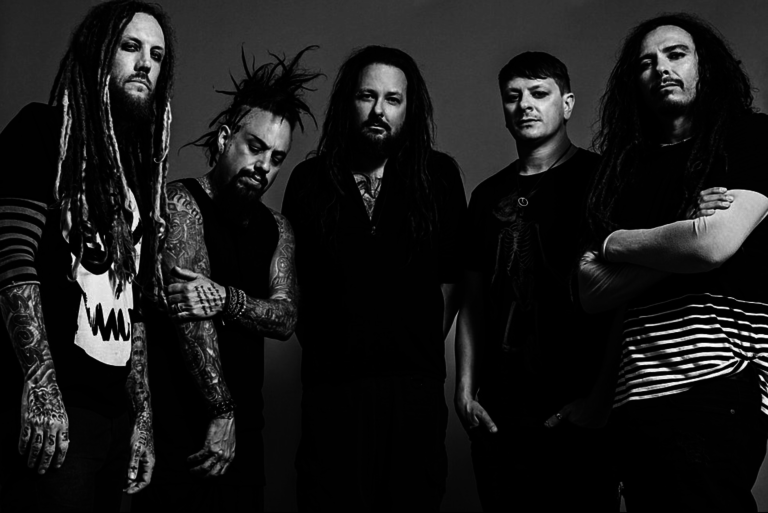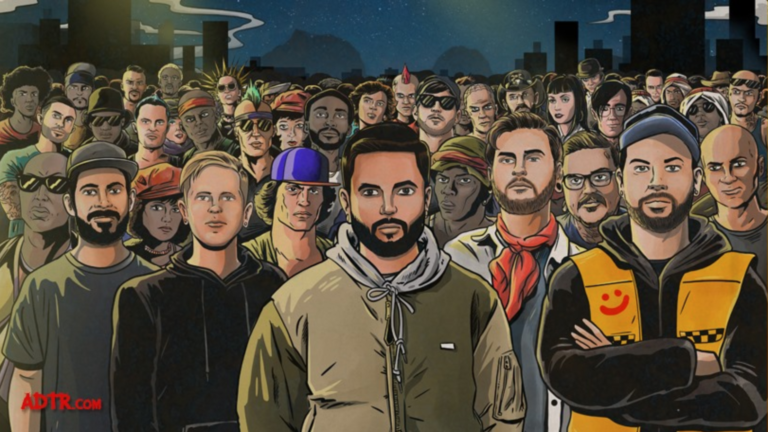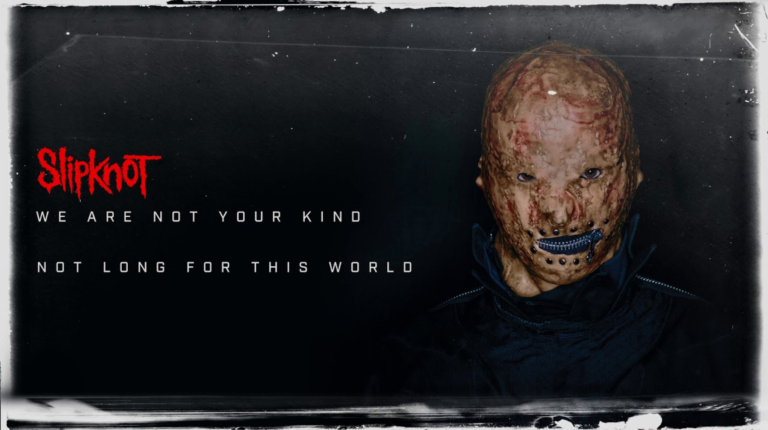With an Ear to the Underground, Oakland Punk and Metal Label Tankcrimes Thrives
Featured Image: Scotty Heath, founder of Oakland punk and metal label Tankcrimes, introduces the band Ghoul at a Tankcrimes showcase at the Oakland Metro Operahouse in February 2019. (Rob Coons)
Scotty “Karate” Heath wasn’t born in Oakland, but the impact he’s had on the city’s rich metal and punk DIY scene is incalculable. Seventeen years ago, he started a record label in his garage, and called it Tankcrimes. Heath had previously put out a couple of records under the name Controlled by Plague, which was an existing label project that he’d inherited from a friend, but 2005 saw the first actual Tankcrimes release, a seven-inch EP from Bay Area deathgrind unit Population Reduction.
“The label started out of necessity; my own band needed a label and so did a handful of killer bands that had all began popping off around the Bay around the same time in the early 2000s,” Heath says. “It was always based within our local punk community. The manufacturing of the first half dozen or so releases were even funded by friends from the scene and some band members chipping in.”
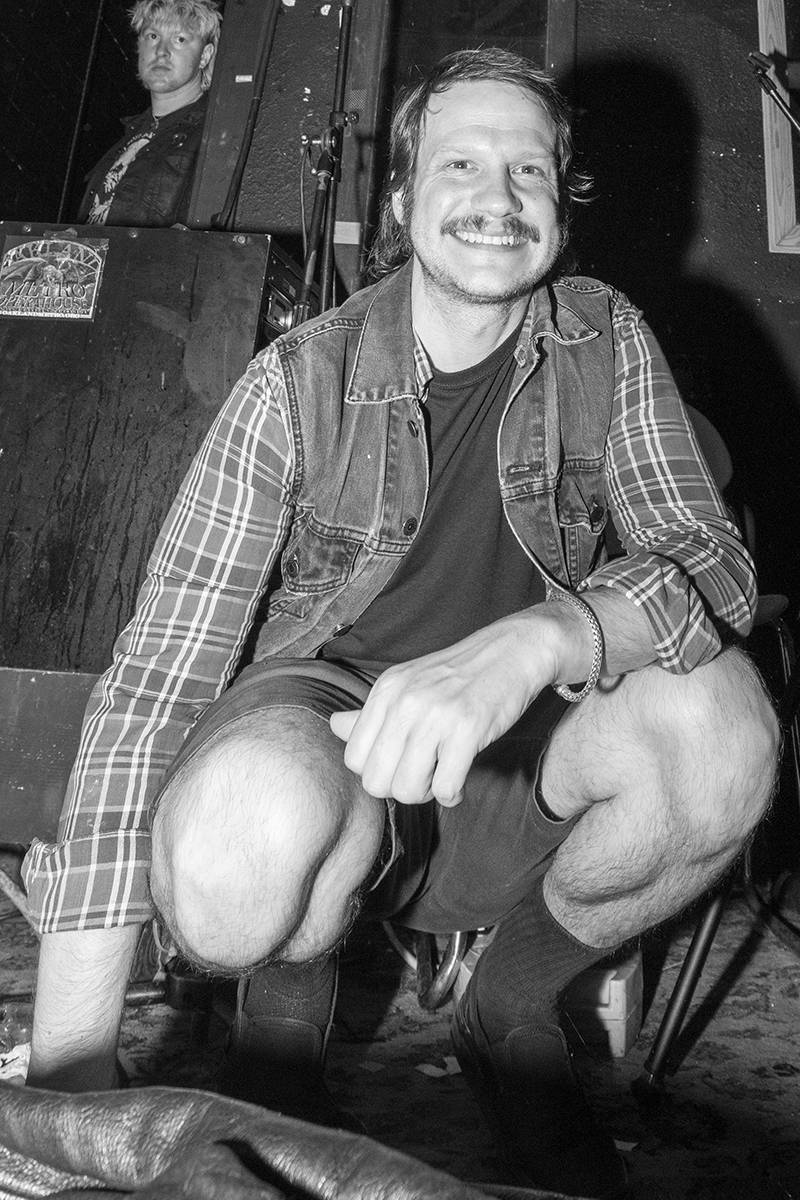
In the early 2000s (prior to the mid-2000s thrash metal boom that helped kick the region’s metal scene into overdrive) the Bay Area already had a massive DIY infrastructure, with venues like Mission Records, Burnt Ramen and 924 Gilman, and labels like Prank, 625, Six Weeks and Alternative Tentacles. Mordam Distribution and and the fanzine Maximum Rocknroll kept the scene weird and vibrant. Heath’s endeavor came out of that same hardcore punk scene, but his eventual willingness to embrace metal too added new dimensions to his label’s output. Now, Tankcrimes is better known for its thrash and sludge than its d-beat, which is a little ironic given Heath’s own status as a lifelong punk.
“All this stuff was there and we were still existing below that point of interest—until we weren’t anymore,” Heath explains. “All the underground labels I aspired to be when I started have all either shut down or slowed down to one or less releases a year. I think I started at a time when it was easier to adapt and evolve with the way people listen to music.”
That initial spark grew into a wildfire as Heath’s friends continue to make boundary-smashing, genre-crushing metal and punk music, and he continues to unleash them into the world. Now, nearly two decades since he decided to take a chance on releasing that first record on his own, Tankcrimes boasts a formidable catalogue (Discogs notes 142 releases) and has released some of the most crucial metal and punk releases of the past decade from Municipal Waste, Toxic Holocaust, Inepsy, Ghoul, Necrot, Annihilation Time and Iron Reagan as well as reissued classics from genre giants like Spazz and Dystopia, which continue to sell like gangbusters.
Sean McGrath (better known as Digestor, the masked vocalist/guitarist for splatter punks Ghoul) has been working with Heath since he released Ghoul’s 2010 album, Transmission Zero. In McGrath’s estimation, the label’s forward-thinking approach to DIY and coveted, small-scale physical releases are the major drivers behind its success.
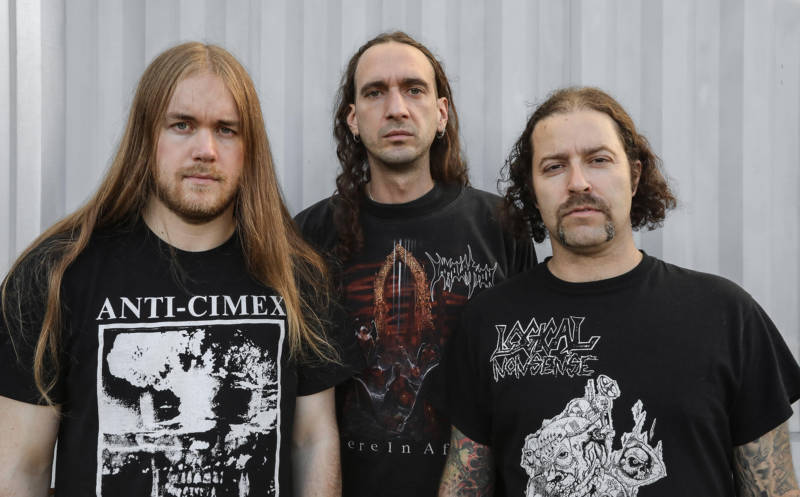
“He has multiple bands on his label [like Ghoul and Necrot] that have had an album on the Billboard charts, and he’s just one guy running the whole show from his garage,” McGrath tells KQED over email. “And that success is partially because he’s been smart about taking advantage of new distribution and promotion channels, but also by paying attention to what people are listening to, and trying new things to see what works/abandoning the things that don’t.”
Tankcrimes’ typical run for an album is 1,000 CDs and 1,000 vinyl LPs (both formats typically sell out, Heath says), and he’s also embraced streaming in a big way, with most of the label’s releases available as pay-what-you-want downloads. His top sellers include the 2012 split EP between Municipal Waste and Toxic Holocaust, which he still struggles to keep in stock, as well as the aforementioned immensely popular reissues from Spazz and Dystopia. According to him, the defunct Bay Area crusty sludge outfit “is our most popular band on streaming services as well, by far.”
“He’s got that DIY punk ethos which is deeply held (he still rides around on a skateboard flyering light poles when he promotes a show), but he’s really focused on how things are done now, how they’ll be done in the future, and how that punk ethos can guide him there,” continues McGrath, whose own band’s albums are repressed every year. Maximum Rocknroll, Storied Punk Magazine, Discontinues Print Edition



